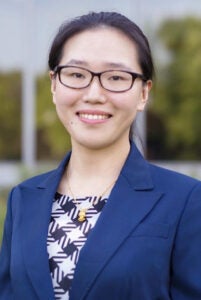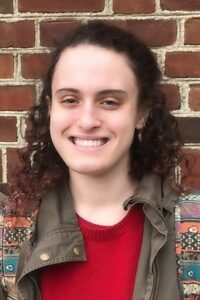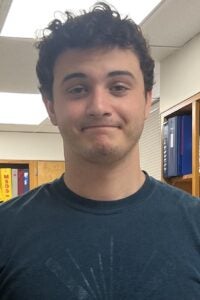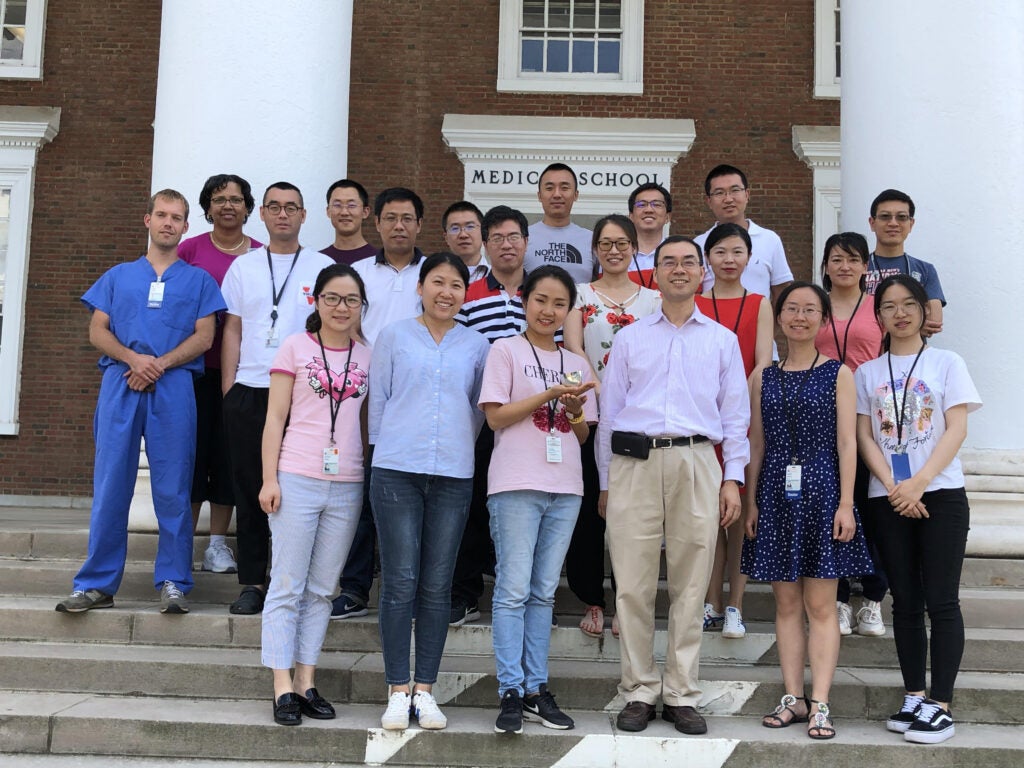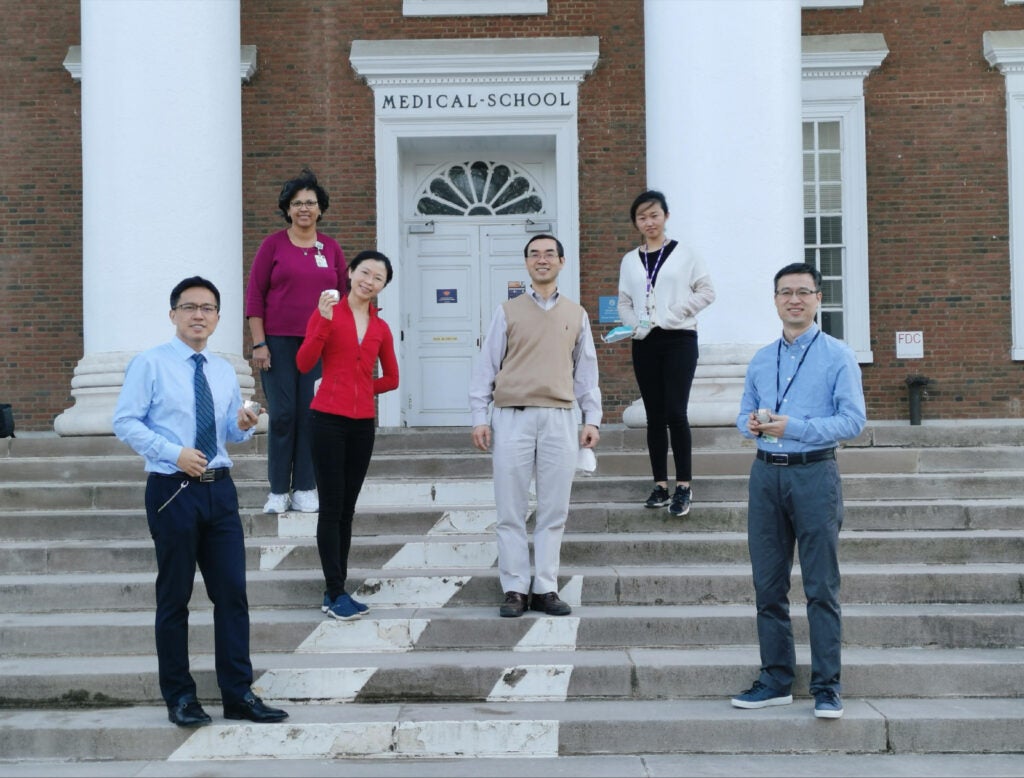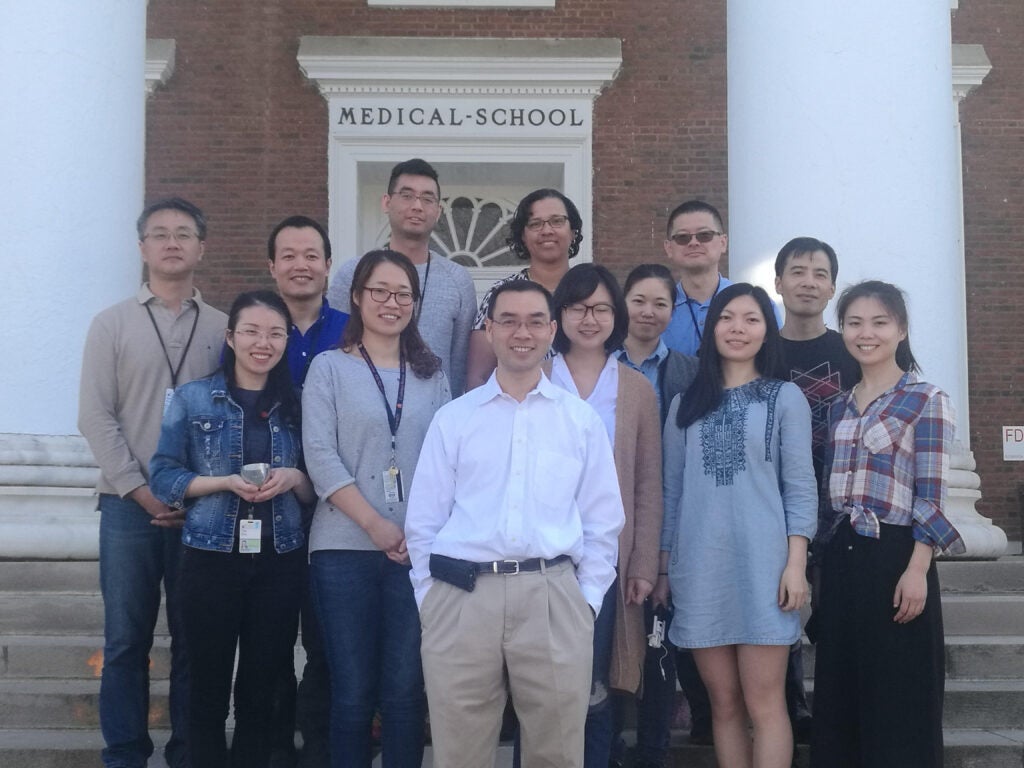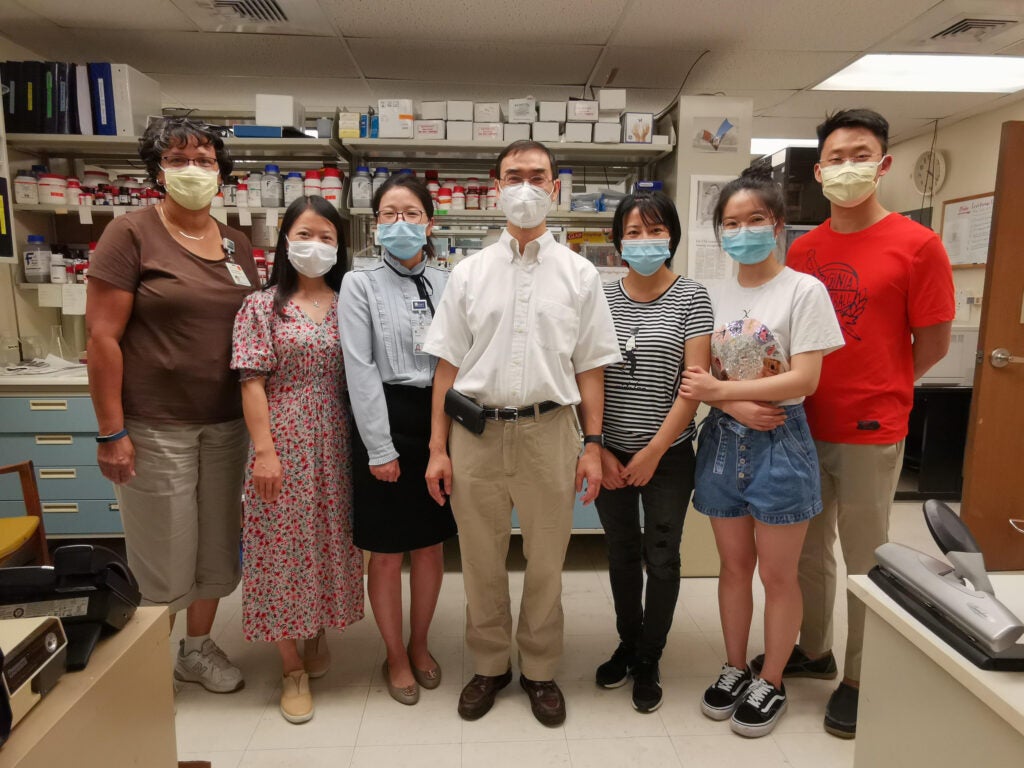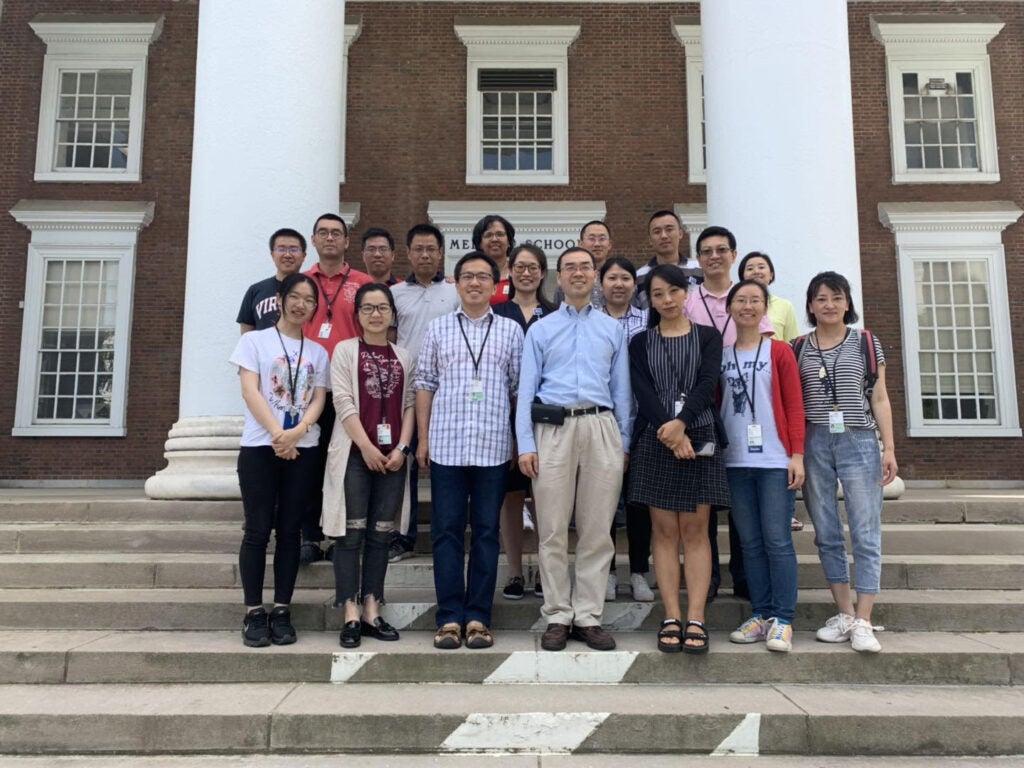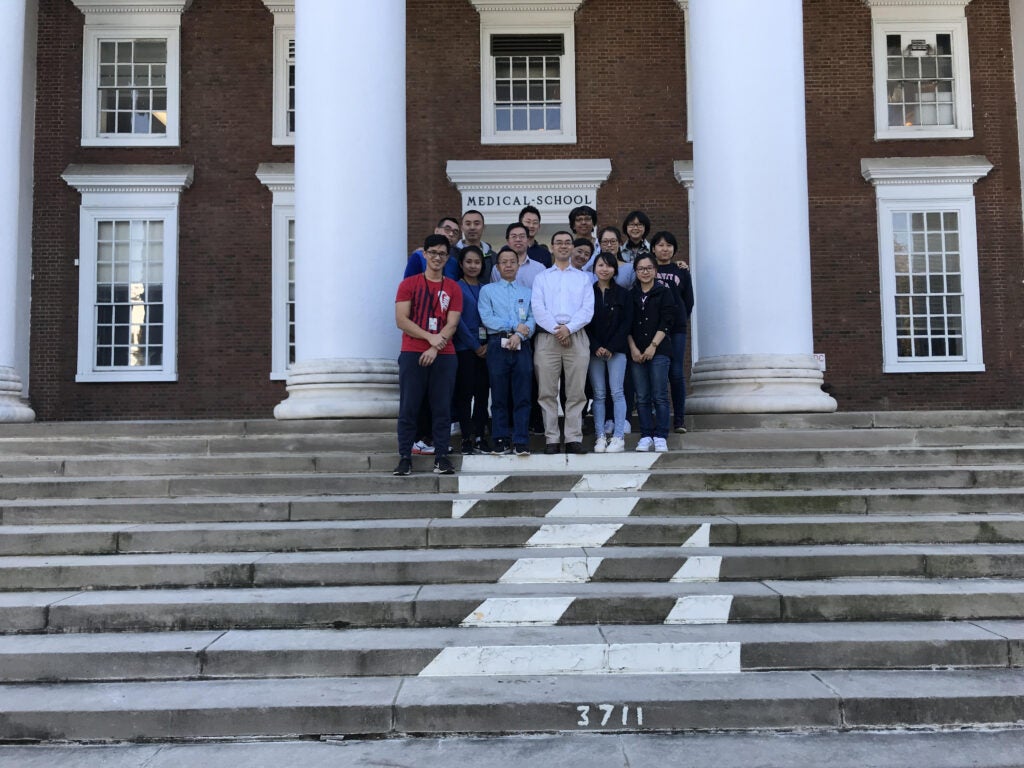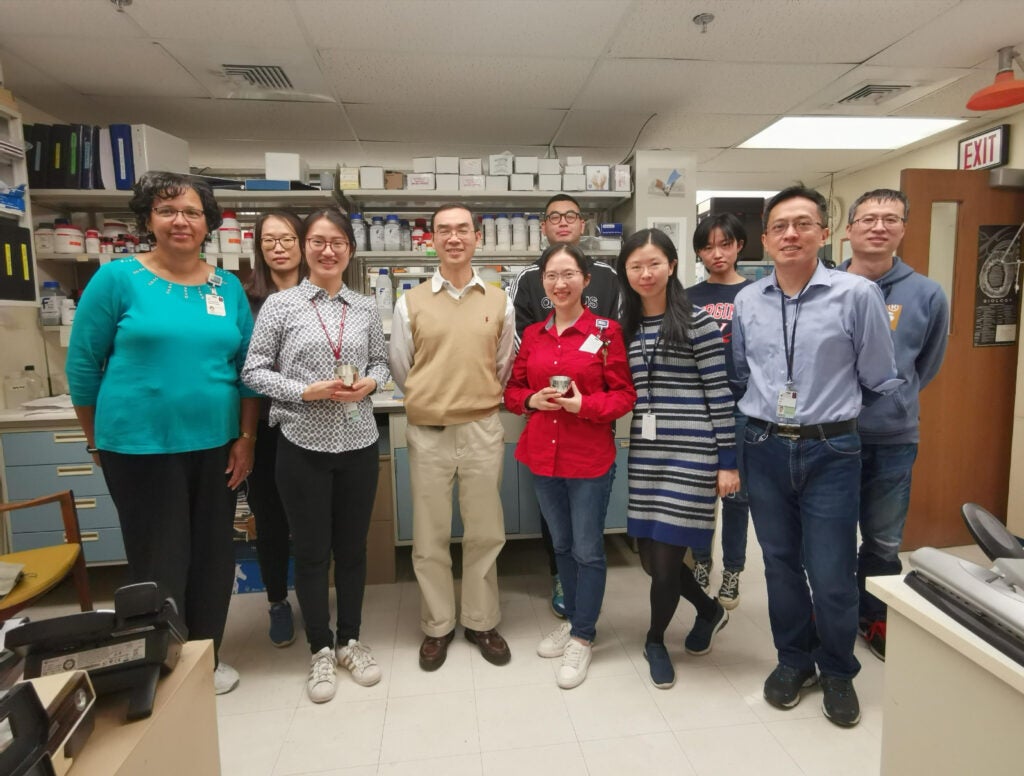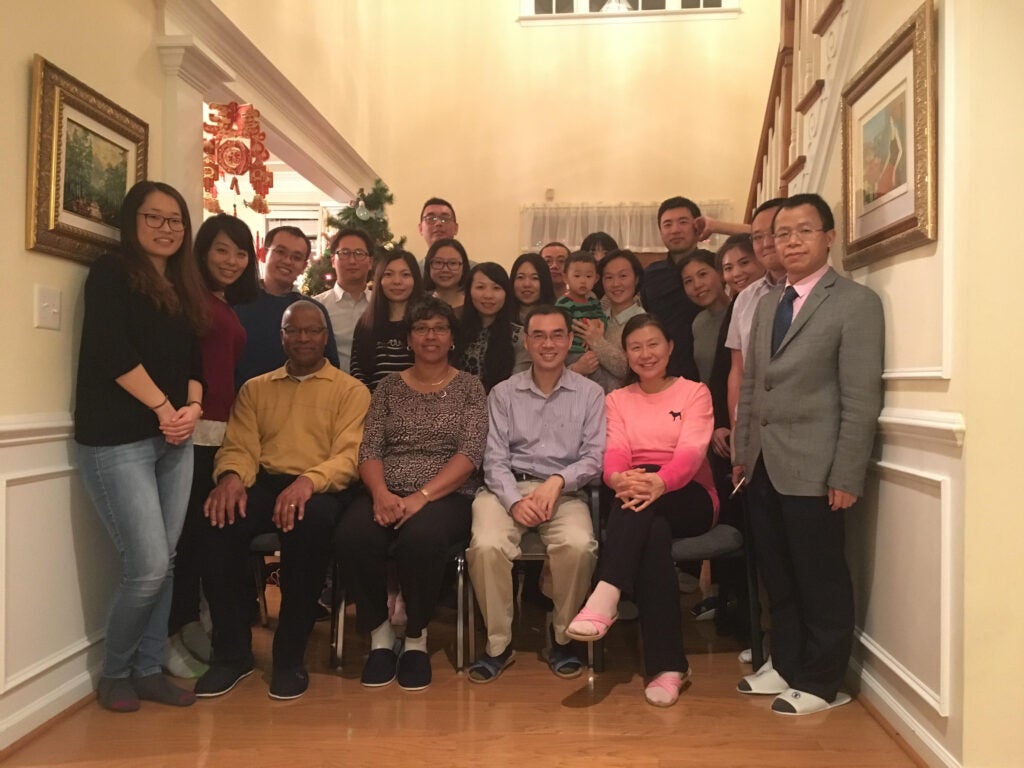Dr. Zuo’s Lab
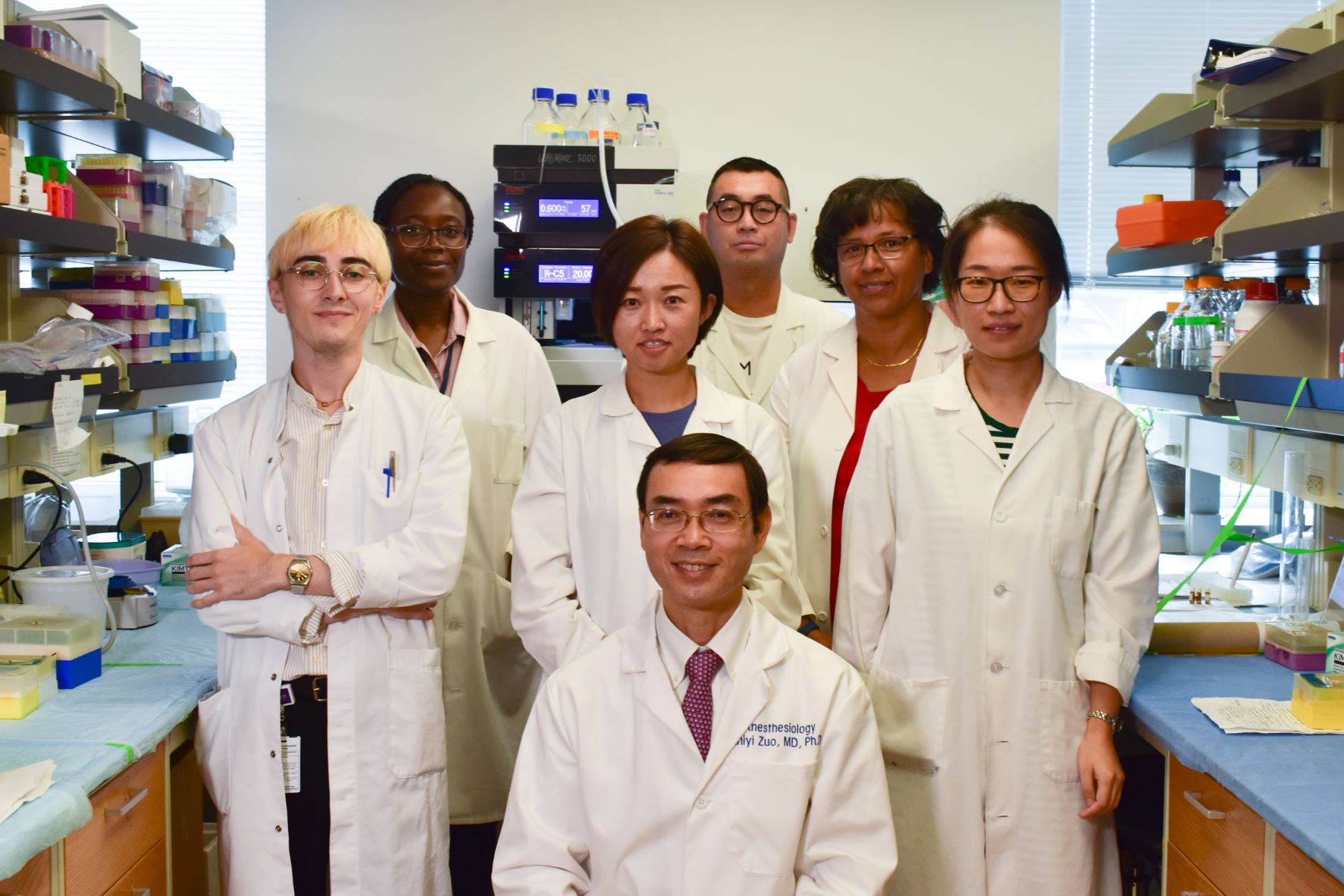
Welcome to Dr. Zuo's Research Lab
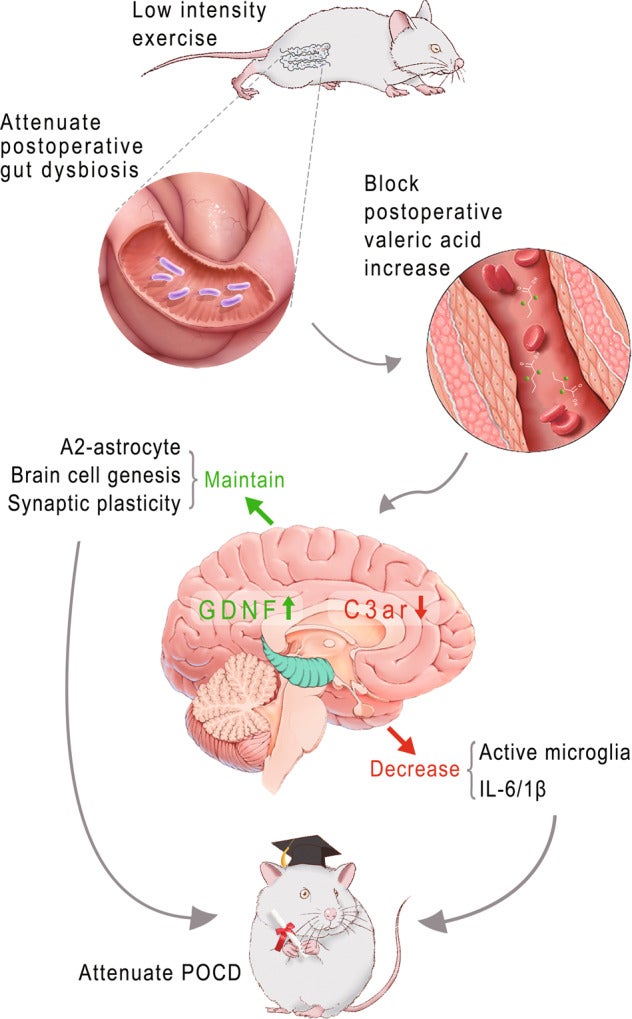
Pathway to POCD
Dr. Zuo’s Lab began at the University of Virginia (UVA) in 2000. While Dr. Zhiyi Zuo, MD, PhD is the Principle Investigator, he recruits physician researchers from all over the world to come to UVA and collaborate as members of his lab. Dr. Zuo’s team of scientists was the first to demonstrate anesthetics modulate glutamate transporter activity. They discovered these neuronal glutamate transporters may be involved in learning, memory, ischemic brain tolerance and recovery from anesthesia. His body of research identified anesthetics impact the biological functions of glutamate transporters.
In recent years, Dr. Zuo’s Lab focused on understanding postoperative cognitive dysfunction (POCD), an important clinical syndrome attracting great public attention. This syndrome affects 10 to 40% of patients after surgery and is associated with increased mortality and morbidity. A leader in modeling POCD in animals, Dr. Zuo’s lab has identified potential risk factors and mechanisms for the syndrome with the goal to reduce its occurrence. They uncovered the pathway from surgery and anesthesia-induced systemic inflammation, to the microstructural changes in the neurons, which ultimately leads to the learning and memory dysfunction in a delayed phase after surgery. More recently, Dr. Zuo has turned his attention to potentially modifiable factors, such as anesthetic choice and antibiotic use for POCD. He led the only multi-center study published thus far to determine whether the choice of sevoflurane vs. propofol-based anesthesia has an impact on the POCD rate. This paper, published in Anesthesiology generated 17,266 views:
Currently, Dr. Zuo’s scientists evaluate non-pharmacological approaches, such as environmental enrichment and exercise, to reduce POCD. In a very comprehensive study published in Molecular Psychiatry, Dr. Zuo’s group provided strong evidence for the involvement of gut dysbiosis in POCD and the beneficial effects of exercise.
In addition to the POCD research, Dr. Zuo’s group studies the effects of surgery on bystanders. They found that cage-mates of mice with surgery can have anxious behavior and impairment of learning and memory. If confirmed in humans, this finding may open a new field pertaining to the relatives of patients who undergo surgery. A long-term research goal is to understand the mechanism of ischemic brain injury and identify potential interventions to reduce it. Ischemic brain injury is the underlying neuropathology for stroke and brain trauma, leading causes of mortality and morbidity nationally and globally.
Age, Strokes, and Gut Microbiomes: New Insights From Mice
About Dr. Zuo's Lab

Zhiyi Zuo, MD, PhD
Zhiyi Zuo, MD, Ph.D.
Robert M. Epstein Professor of Anesthesiology and Executive Vice Chair
Dr. Zuo first joined the University of Virginia as a post-doctoral fellow in 1994 after receiving an M.D. from Zhongshan Medical College in China and a Ph.D. from the University of Cambridge in the United Kingdom. Subsequently, he completed his anesthesia residency at UVA and then joined the faculty as an Assistant Professor in 2000. After only 7 years on faculty, Dr. Zuo was promoted to tenured a Professor of Anesthesiology, Neuroscience and Neurosurgery. He currently occupies the Robert M. Epstein endowed professorship and serves as the Executive Vice Chair in the Department of Anesthesiology at the University of Virginia.
Over the last 20 years, Dr. Zuo has consistently had NIH funding and currently serves as the Principle Investigator on multiple R01 grants and as a Co-Investigator. He has had funding from the American Heart Association and various other foundations and professional societies including the International Anesthesia Research Society (IARS). Dr. Zuo has over 250 peer-reviewed publications with an H factor of 53, i10-index of 178, and approximately 9500 total citations. Nearly all his papers are original studies where he is the corresponding author.
Dr. Zuo is clearly recognized by experts in many medical fields including neuroscience and anesthesiology for his outstanding research. He won the Presidential Scholar Award from the American Society of Anesthesiologists in 2005 and the Frontiers in Anesthesia Research Award from the International Anesthesia Research Society in 2007. Internationally, he was recognized as one of the top 10 Chinese Physicians in the world in 2018 (Fok Ying-Tung Prize, the World Outstanding Chinese Doctor Award). In 2020, the Vice President for Research and the Provost of the University of Virginia honored Dr. Zuo with a Research Scholar Award in recognition of his enduring significant contributions through research.
Dr. Zuo’s research has been been transformative in the fields of medicine, neuroscience and anesthesiology. In 2002, he was one of the first investigators to identify anesthetic preconditioning-induced neuroprotection and in 2008, Dr. Zuo was the first to identify anesthetic postconditioning-induced neuroprotection. These concepts stimulated and advanced similar research topics around the world aiming to identify interventions and molecular mechanisms to induce neuroprotection against brain ischemia during the perioperative period. He has been a true leader in this field, identifying various molecules such as mitogen-activated protein kinases for anesthetic-induced neuroprotection, an off-target effect of anesthetics. These findings have expanded our understanding of anesthetic effects on the brain.
In addition to advancing research at the University of Virginia and in the specialty of anesthesia, he has mentored over 200 students, residents, fellows, post-doc and junior faculty from all over the world. Many of these mentees have obtained external funding and have gone on to other institutions to become independent investigators, academic anesthesiologists and leaders in our specialty and subspecialities.
Email: ZZ3C@virginia.edu
-
Jackie Washington
Laboratory Specialist JMW8Q@virginia.edu
-
Shan Weiran, PhD
Research Scientist SW8GM@virginia.edu
-
Jun “Frank” Li, PhD
Postdoctoral Researcher JL3FX@virginia.edu
-
Nadia Adotevi, PhD
Research Associate NKA7GS@virginia.edu
-
Qun Jiang
Visiting Scholar
FBD2ZJ@virginia.edu
-
Wenzhe Zang, PhD
Research Scientist
JUM4PF@virginia.edu
-
Olivia Strasburg
Student Volunteer
OCS9FSC@virginia.edu
-
Alex Pellicane
Student Volunteer
APP5U@virginia.edu
-
Klaudia Augustyn
Visiting Graduate Student
BHY9BK@virginia.edu
Dr. Zuo’s Research is actively supported by the following Grants:
1R01HD089999 “Glial cell line-derived neurotropic factor and postoperative cognitive impairment in young rats.” Principal Investigator: Zhiyi Zuo
Agency: NIH
1R01NS099118 “Obesity-induced cerebral vascular remodeling and poor brain ischemic
tolerance”
Principal Investigator: Zhiyi Zuo
Agency: NIH
1R01NS099261 “Photoacoustic Microscopy of the Awake Mouse Brain”
Principal Investigator: Song Hu (Role for Dr. Zuo: Co-Investigator)
Agency: NIH
1RF1 AG061047 “Carboxyl-terminal modulator protein, Abeta and brain aging”
Principal Investigator: Zhiyi Zuo
Agency: NIH
1R21EB026723-01A1 “A novel drug loading method to protect neural cells from oxidative stress induced by a hypoxic/ischemic inflammatory environment”
Principal Investigator: Kyle J. Lampe (Role for Dr. Zuo: Co-Investigator)
Agency: NIH
Investigator-initiated project “Self-assembling, shear-thinning peptide hydrogels to support cell
transplantation and host cell interaction after ischemic stroke”
Principal Investigator: Kyle J. Lampe (Role for Dr. Zuo: Co-Investigator)
Agency: Commonwealth Health Research Board of Virginia Commonwealth
Major awards for Dr. Zu
The American Society of Anesthesiologists’ Presidential Scholar Award, 2005 (one awardee per year)
The Frontiers in Anesthesia Research Award, International Anesthesia Research Society, 2007 (one awardee every two years from the world)
Fok Ying-Tung Prize, the World Outstanding Chinese Doctor Award, 2018 (ten awardees per year from the world)
Research Award, University of Virginia, 2020, for being one of the top NIH funded researchers in the Anesthesiology field in a particular year in the USA.
Please click to view Dr. Zhiyi Zuo’s Publications.






